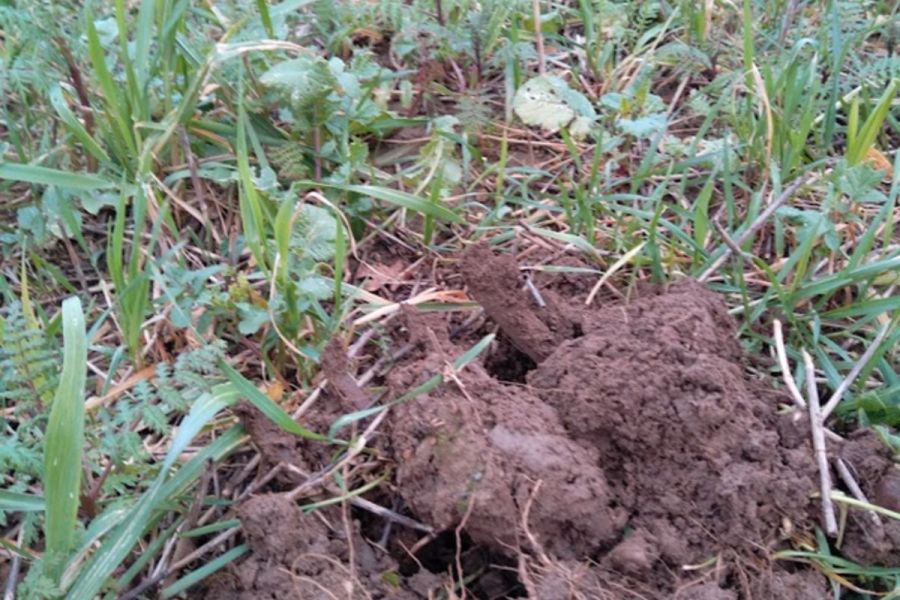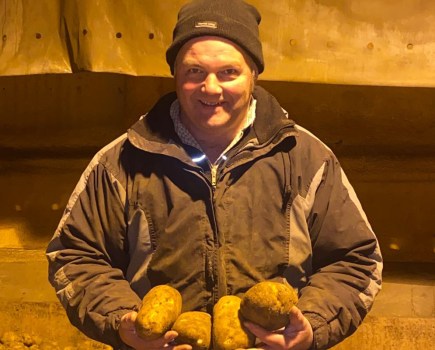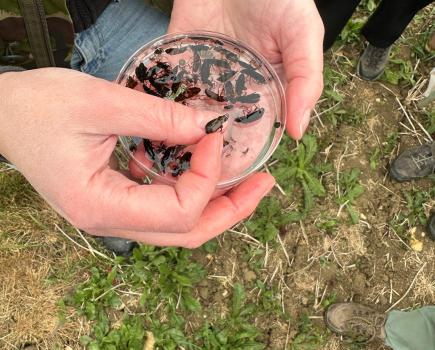By Andrew Wilson
Unsurprisingly, I have no field work activities to report this month – the nearest we’ve been is making a muck heap in one of our driest undrained fields three times bigger than is required for the 3.5ha field it sits on.
For the first time in my memory we haven’t been able to tip muck in winter where it’s to be spread, so it will be to move again. Hey-ho, I’m not on my own with that, I’m sure. We haven’t been able to lift beet either, but going by the factory outputs, that’s a widespread issue too.
So wet day jobs have been the order of the day here. They take many forms – from recruiting a member of staff to fill a vacancy in our little team to making some ventilated doors for our pig sheds, as well as servicing spring machinery, catching up on some training and having a few days holiday.
I’ve been fortunate to benefit from the advice of many wise people over the years, but one that always sticks in my mind was given to me at a time when I was being a particularly irksome know-all teenager (engage Yorkshire accent for this!)
“You want t’gerr out ot farm gate an larn summat lad, or y’ll stop at ome til yer know nowt” – the gentleman was trying to point out to me that there was life outside of our little patch, and I hadn’t been on the earth long enough to know everything yet.
How wise was he. Here we are 30 odd years down the line, and I find that I’ve barely scratched the surface of what’s out there to learn about even just growing potatoes, never mind the wide-ranging subjects that agriculture encompasses.
I have a broad YFC heritage and sit as a founder member of a group called the Future Farmers of Yorkshire, in addition to playing an active part in the AHDB SPot, Strategic and Monitor farms over the years. Levy isn’t avoidable, but becomes no more than a tax if one doesn’t engage in the services available – where else could I benefit from the minds of inspirational people like Philip Wright, Neil Fuller, Joel Williams, Hannah Fraser, or Tim Isaac for no cost beyond my time?
This principle applies to many things including farm walks, discussion groups and industry body meetings like GB potatoes – the more people that turn up the better the discussion and knowledge transfer is possible – I’ve never come away from such a meeting and not learned something.
Back on the farm we’ve just finished loading our February contracted potatoes, with nearly half of them going through our washer due mostly to dry rot in store. Soils for potato growing in 2024 are sampled and fertiliser planned, along with an inevitably larger and ever edited programme of spring drilling for the rest of the farm.
Cover crops this season were once again a struggle to establish, but even the poorer ones have showed their worth in protecting the ground from the blasting that heavy rainfall can deliver, along with capturing nutrients, sequestering carbon, reducing cultivation requirements, and keeping nematodes in check. They’ll be desiccated and most of them topped in the coming weeks as ground conditions allow.
I won’t say too much about the impending loss of our industry’s oldest multi-site blight protection product here because it’s covered elsewhere in this publication, but just to say the real loss is in the associated consequences such a ban brings via co formulations.
Mancozeb has been around for many years, yet sadly it’s to go the same way as Diquat, CIPC and others. A cynic would say its demise is more driven by money than any safety issue, but I’ll leave you to decide that yourselves!
Having put myself through the annual CPD that is the NROSO update, I also learned of the newest big stick to our industry, that of Pesticide Enforcement Officers. I have to say I prefer a carrot to a stick, but we have little say in the matter. I urge you all to carry out a self-audit of your chemical stores and procedures while we can’t get on the land.
Even given all that doom, I somehow remain optimistic for a decent 2024 potato season. Next week will see seed potatoes arrive to potentially be dressed with fludioxonil before going into Blackburn crates for chitting ready for planting. Machinery is at least part serviced and plans are mostly made. It will dry up soon, I’m sure.
In the meantime, I’d better go and do that self-audit.
This article was taken from the latest issue of CPM. For more articles like this, subscribe here.
Sign up for Crop Production Magazine’s FREE e-newsletter here.




